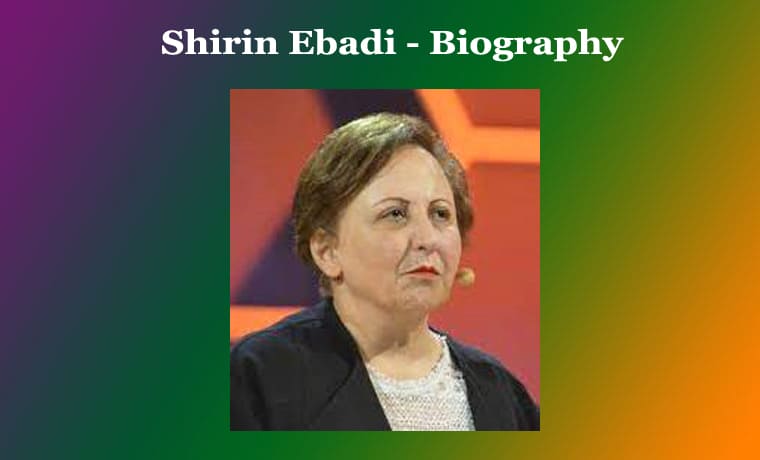Shirin Ebadi – Biography
Shirin Ebadi – Biography
Shirin Ebadi was born on June 21, 1947, in Hamadan, Iran. Growing up in a progressive family, she developed an early passion for justice and human rights. Ebadi pursued her legal education at the University of Tehran, graduating with a law degree in 1969.
Early Career:
After completing her education, Shirin Ebadi became one of the first female judges in Iran. However, following the Islamic Revolution of 1979, the new regime dismissed female judges, and Ebadi was forced to resign from the judiciary. Undeterred, she continued her career as a lawyer, advocating for women’s and children’s rights.
Activism and Advocacy:
Shirin Ebadi became a prominent human rights activist, dedicating her efforts to championing the rights of women, children, and political prisoners. She fearlessly spoke out against government policies that violated human rights, especially those affecting women and minorities.
Nobel Peace Prize:
In 2003, Shirin Ebadi was awarded the Nobel Peace Prize for her efforts in promoting human rights, democracy, and gender equality in Iran. She became the first Iranian and the first Muslim woman to receive this prestigious honor. The Nobel Committee recognized her “efforts for democracy and human rights” and her determination to “promote non-violent struggle for the safety of women and for women’s rights to full participation in peace-building work.”
Exile and Continued Advocacy:
Facing increasing threats and harassment in Iran, Shirin Ebadi went into exile in 2009. Despite living outside her home country, she continued to be an unwavering advocate for human rights, using her platform to shed light on the ongoing struggles faced by the Iranian people.
Literary Contributions:
Ebadi has authored several books, including her memoir “Iran Awakening: A Memoir of Revolution and Hope,” co-written with Azadeh Moaveni. In her writings, she shares her personal journey, reflecting on the challenges and triumphs of her life as an activist and advocate for justice.
Shirin Ebadi‘s legacy is one of resilience, courage, and a relentless commitment to human rights. Her groundbreaking achievements, including the Nobel Peace Prize, have made her an iconic figure in the global fight for justice and equality. Despite the personal risks she has faced, Ebadi remains an influential voice, inspiring activists around the world to champion the cause of human rights and social justice. 0 0 0.
Shirin Ebadi – Biography












